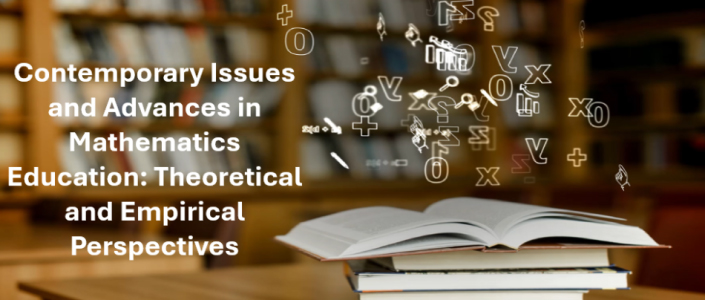Contemporary Issues and Advances in Mathematics Education: Theoretical and Empirical Perspectives – Research – Department of Teacher Education
Contemporary Issues and Advances in Mathematics Education: Theoretical and Empirical Perspectives
The research group Contemporary Issues and Advances in Mathematics Education: Theoretical and Empirical Perspectives brings together researchers interested in current developments and challenges in mathematics education. The group integrates theoretical and empirical approaches, focusing on topics ranging from teaching and learning in schools and higher education to the professional development of preservice and in-service mathematics teachers.

About us
This research group focuses on recent advancements in mathematics education and supports a broad spectrum of research, ranging from studies aimed at improving the teaching and learning of mathematics in schools and universities to projects focused on the professional development of preservice and in-service mathematics teachers.
Drawing on both constructivist and sociocultural theories, group members engage not only in empirical research but also in the networking of theories in mathematics education—an emerging area of interest in the field. Another key research focus involves the analysis of textbooks and interactive digital resources from multiple theoretical perspectives, as well as designing new resources for specific educational purposes.
The potential use of generative AI tools in mathematics education—as assistants for teaching, learning, and research—will be a major focus of the group in the coming years.
The theoretical frameworks used in this research group include, but are not limited to, the Anthropological Theory of the Didactic (ATD), commognition, the Documentational Approach to Didactics (DAD), instrumental genesis, and Mathematical Pedagogical Technology Knowledge (MPTK) in mathematics education.
Our research group meets monthly to discuss ongoing projects, share insights, and support one another in conducting high-quality theoretical and empirical studies. Members regularly provide feedback on research outputs, including journal articles and conference papers.
We also maintain active collaborations with international partners in the UK, Germany, and Sweden.
Monthly meetings are held in person at the Department of Teacher Education, NTNU, with the option to join online for those participating remotely.
If you are interested in joining the group’s research activities, please contact Farzad Radmehr at farzad.radmehr@ntnu.no.
Participants from NTNU
-
Arne Kristian Karlsen Amdal Assistant Professor
+47-73550368 +4795930437 arne.amdal@ntnu.no Department of Teacher Education -
Ahu Canogullari PhD student
ahu.canogullari@ntnu.no -
Iveta Kohanová Associate Professor
+47-73412883 iveta.kohanova@ntnu.no Department of Teacher Education -
Magdalini Lada Associate Professor
+47-73412375 magdalini.lada@ntnu.no Department of Teacher Education -
Marit Buset Langfeldt Assistant Professor in Mathematics
+47-73412021 marit.b.langfeldt@ntnu.no Department of Teacher Education -
Anders Sanne Associate Professor in Mathematics Education / Professional Manager for Practical Teacher Training
+47-73598194 +4791897866 anders.sanne@ntnu.no Department of Teacher Education -
Heidi Strømskag Professor and Excellent Teaching Practitioner
+47-73591743 +4798441839 heidi.stromskag@ntnu.no Department of Mathematical Sciences -
Solomon Abedom Tesfamicael Associate Professor
+47-73412609 solomon.a.tesfamicael@ntnu.no Department of Teacher Education -
Melih Turgut Associate Professor in Mathematics Education
+47-73558959 Melih.Turgut@ntnu.no Department of Teacher Education -
Haile Yideg Zeleke
haileyz@stud.ntnu.no Department of Teacher Education
External participants
- Erik Hanke, Visiting professor, the University of Education Schwäbisch Gmünd, Germany
